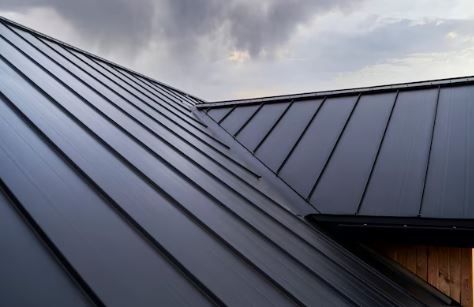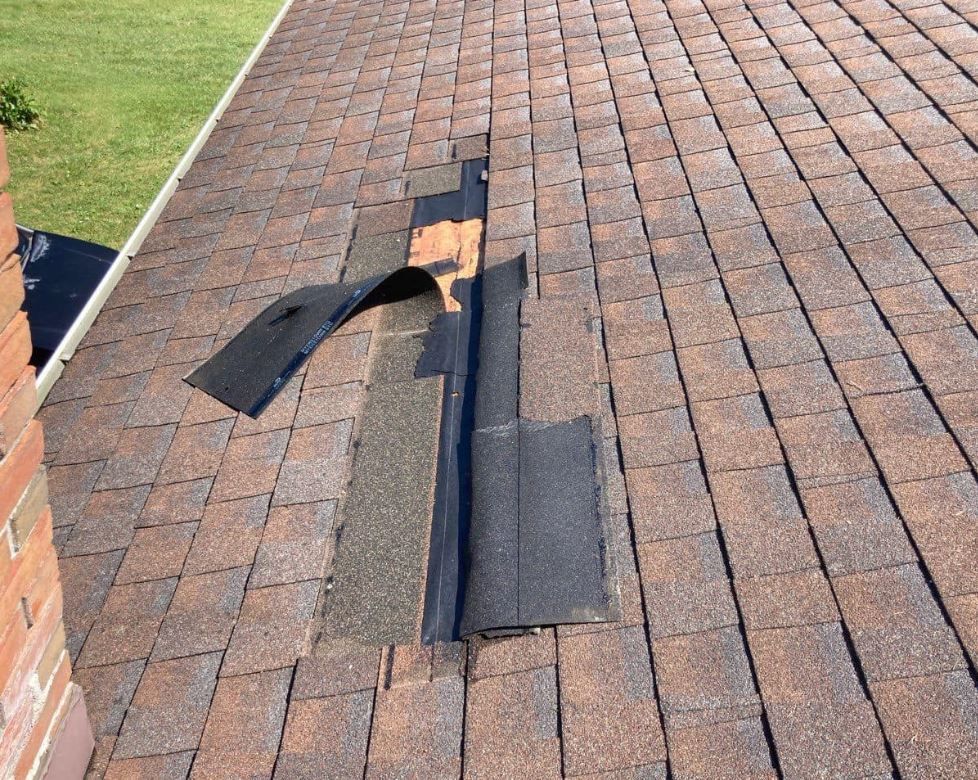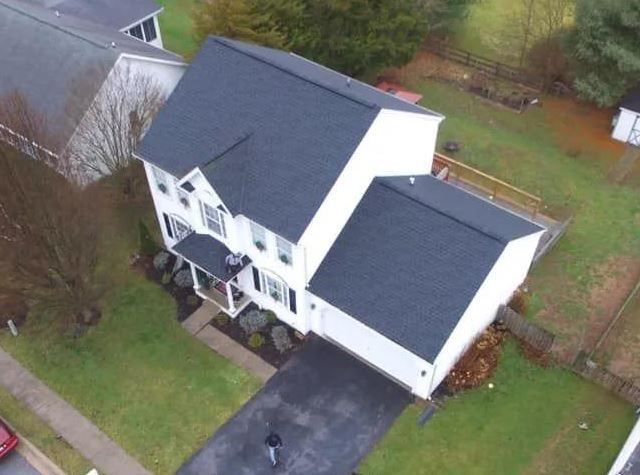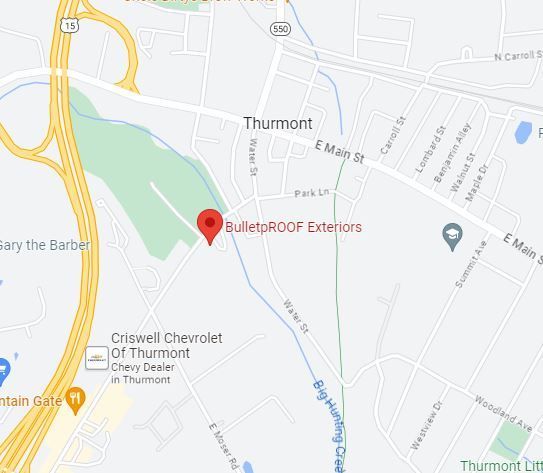If you’re planning on a new roof, make your plan BulletpROOF!
Morgan, Jefferson, and Berkeley counties in WV
Frederick, Washington, Howard, Carroll, and Montgomery counties in MD
Adams and Franklin counties in PA
Everything You Always Wanted to Know About Metal Roofs
Everything You Always Wanted to Know About Metal Roofs

Everything You Always Wanted to Know About Metal Roofs
When it comes to roofing options, metal roofs have gained significant popularity for their durability, energy efficiency, and aesthetic appeal. If you're considering a metal roof for your home or commercial property, this comprehensive guide will cover everything you've always wanted to know about metal roofs.
The Advantages of Metal Roofing
Metal roofing has become a top choice for homeowners and businesses alike, and it's not without reason. Let's delve into the key advantages that make metal roofs stand out:
- Durability:
- Metal roofs are renowned for their longevity, often lasting 50 years or more.
- They can withstand harsh weather conditions, including heavy snow, hail, and high winds.
- Energy Efficiency:
- Metal roofs reflect the sun's rays, reducing the heat absorbed by your home.
- This reflective property can lead to lower cooling costs, making metal roofs an environmentally friendly choice.
- Versatility and Aesthetics:
- Available in a variety of styles and colors, metal roofs complement various architectural designs.
- They can mimic the appearance of traditional roofing materials like shingles, tiles, or slate.
- Low Maintenance:
- Metal roofs require minimal maintenance, making them a hassle-free option for homeowners.
- Regular inspections and occasional cleaning are usually sufficient to keep a metal roof in top condition.
Types of Metal Roofing Materials
Metal roofs offer a range of material options, each with its own set of characteristics. Understanding the types of metal roofing materials available can help you make an informed decision:
- Steel:
- One of the most common choices for metal roofing due to its affordability and durability.
- Often coated with zinc or a zinc-aluminum alloy to prevent corrosion.
- Aluminum:
- Lightweight and corrosion-resistant, making it an ideal choice for coastal areas.
- Aluminum roofs are known for their resistance to rust and corrosion.
- Copper:
- A premium option valued for its distinctive appearance and longevity.
- Develops a unique patina over time, adding character to the roof.
- Zinc:
- Known for its natural resistance to corrosion and minimal maintenance requirements.
- Zinc roofs can last for a century or more, making them a sustainable choice.
- Standing Seam vs. Metal Shingles:
- Standing seam roofs offer a modern, sleek look with raised seams.
- Metal shingles provide a traditional appearance while offering the benefits of metal roofing.
Installation Process of Metal Roofs
The installation of a metal roof involves a meticulous process to ensure longevity and optimal performance. Here's an overview of the typical steps involved in metal roofing installation:
- Inspection and Preparation:
- A thorough inspection of the existing roof to identify any underlying issues.
- Preparation includes the removal of old roofing materials and the installation of an underlayment.
- Framework and Substructure:
- Installation of the structural framework to support the metal roofing panels.
- Proper substructure ensures the even distribution of weight and enhances the roof's integrity.
- Panel Installation:
- Metal roofing panels are installed starting from the bottom and progressing upward.
- Standing seams or interlocking panels provide a secure fit, preventing water infiltration.
- Flashing and Ridge Installation:
- Flashing is applied to roof penetrations, such as chimneys and vents, to prevent leaks.
- Ridge caps are installed along the roof's peak for added weather resistance.
- Final Inspection:
- A comprehensive inspection to ensure proper installation and address any potential issues.
- The final step involves cleaning up the work area, leaving you with a professionally installed, durable metal roof.
Metal Roof Repair and Maintenance
While metal roofs are known for their durability, proactive maintenance and timely repairs are crucial to ensure their longevity. Here's what you need to know about keeping your metal roof in optimal condition:
- Regular Inspections:
- Conduct visual inspections at least twice a year to identify any signs of damage or wear.
- Look for loose fasteners, damaged panels, or areas that may require resealing.
- Prompt Repairs:
- Address minor issues promptly to prevent them from escalating into major problems.
- Replace damaged panels or fix loose fasteners to maintain the roof's integrity.
- Cleaning and Preventive Measures:
- Remove debris, such as leaves and branches, from the roof surface regularly.
- Inspect and clean gutters to ensure proper drainage and prevent water accumulation.
- Coating and Sealant Application:
- Consider applying protective coatings to enhance the roof's resistance to corrosion.
- Reapply sealant as needed, especially around seams and flashing, to prevent water infiltration.
- Professional Maintenance:
- Schedule periodic professional inspections to identify and address hidden issues.
- Professional maintenance can extend the lifespan of your metal roof and help you avoid costly repairs.
Frequently Asked Questions About Metal Roofing
As you explore the option of a metal roof for your property, it's natural to have questions. Here are answers to some frequently asked questions about metal roofing:
- How Long Do Metal Roofs Last?
- A: Metal roofs can last 50 years or more, depending on the material and proper maintenance.
- Are Metal Roofs Noisy in Rain?
- A: No, modern metal roofs are installed with a solid sheathing that minimizes noise during rain.
- Can I Install a Metal Roof Over My Existing Roof?
- A: While possible, it's generally recommended to remove the existing roof for optimal performance and longevity.
- Are Metal Roofs Prone to Rust?
- A: Most metal roofing materials are coated to resist rust, ensuring long-term durability.
- Do Metal Roofs Attract Lightning?
- A: Metal roofs do not attract lightning, and they are no more likely to be struck than other roofing materials.
By addressing these common questions, we hope to provide clarity and assist you in making an informed decision about choosing a metal roof for your property. If you have more specific queries or require personalized advice, feel free to reach out to our expert team for assistance.
At BULLETPROOF EXTERIORS, we do this every shingle day!






Share On: